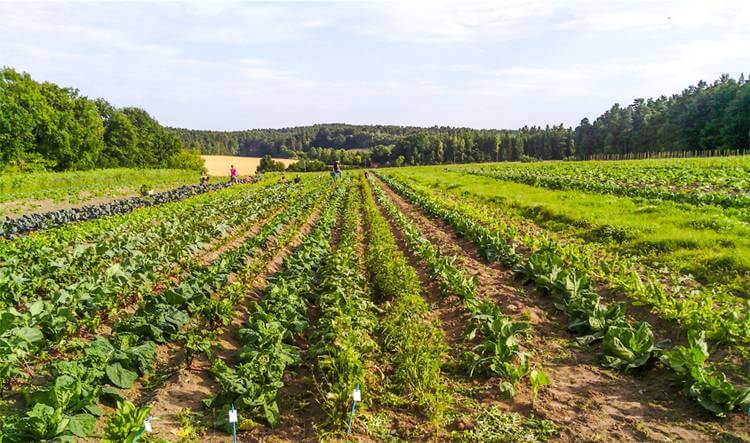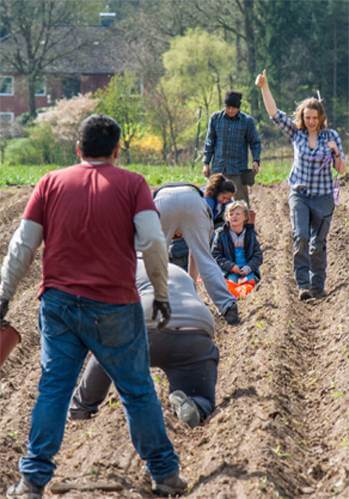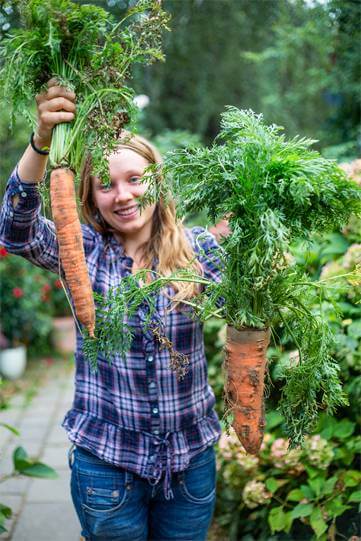Vegetables


When it gets really cold in the winter, the gardeners can start thinking about the new year. Picking onions are ordered, seeds are spotted and the growing plans are prepared for the new year. At the end of February we start sowing peppers and celery, the very early crops, which will take quite some time until they really see the field. First of all, everything is grown loose in the greenhouse, where in April/May, all the tables are already filled with plants. Spinach and lettuces are harvested in the plastic tunnel in the spring. When everything is prepared, the tomatoes can come in around May, which will bring us joy with their great aroma from the middle of summer.
When the farmer works the land in March (unless the weather keeps him from doing so), – and after tractor work and bringing out menure – the beautiful dams are being built on which we grow most of our vegetables. This has worked well for us, even if you lose some space on the field through this method.
Fresh wind,
a wonderful view of the surrounding fields and warming sun …
The first on the field are always the carrots and onions; they are robust and even tolerate slight frosts. When cabbage and salads follow, care is needed. If it gets really cold again, you have to be ready protect the young plants properly.
From mid-May we can breathe again; the crucial period is over and even young, tenderly trimmed plants like the

Fresh wind, a wonderful view of the surrounding fields and warming sun; long conversations with hours of hacking, dusty skin and here and there something to snack on – that’s how it is to work on the field!
Everybody is excited when we deliver the first herbs and lettuce to the kitchen and the farm shop – presenting the produce from one’s own field makes every gardener proud. There’s a lot to do during summertime. Hacking, hacking all over again is the recurring theme.
When the flea beetle
again launches an attack on the rocket salad or the Chinese cabbage …

After many generations of experience, we know that certain plants like to be together. For example, onions, carrots, leeks and celery grow together to help keep the other plants growing and less vulnerable to pests.
The plant families must also be considered. After the cultivation of kohlrabis, there should be no composite in the next year. After cultivation of peppers, solanum won’t grow in the same spot.
For the best possible protection and growth of the plants, we use biodynamic preparations which pass through the manure in the soil or are applied as spray preparations. When the cucumbers and zucchini have long been harvested during the summer and autumn begins, we harvest cabbage, pumpkin, carrots, beetroot and onions. They are stored at 2 ° C. Some are used directly in the kitchen and others are preserved in jars.
when autumn begins, we harvest cabbage, pumpkin, carrots, beetroot and onions …
Shortly before the first frost, the celery comes. Even though it can stand temperatures as low as -5 °
Otherwise, now comes the well-deserved break for the winter time. In the best case, clover, winter rye or vetch are sown, so that the earth doesn’t remain unused and can store some nitrogen over the winter.



